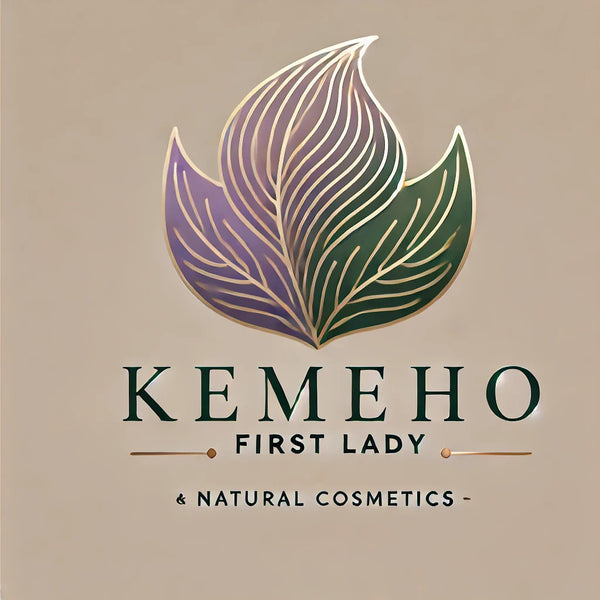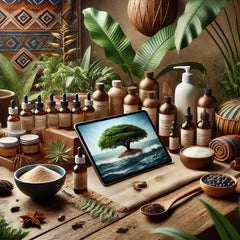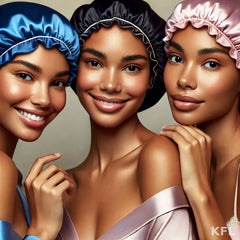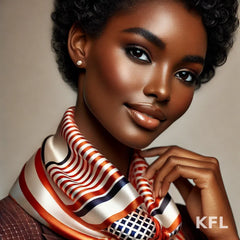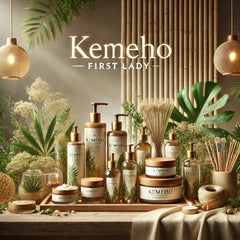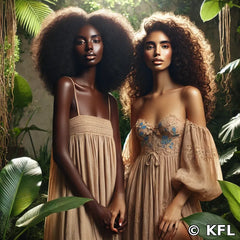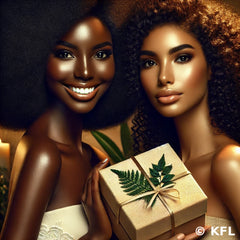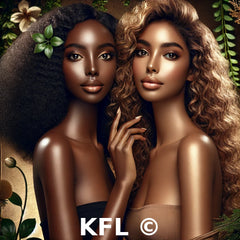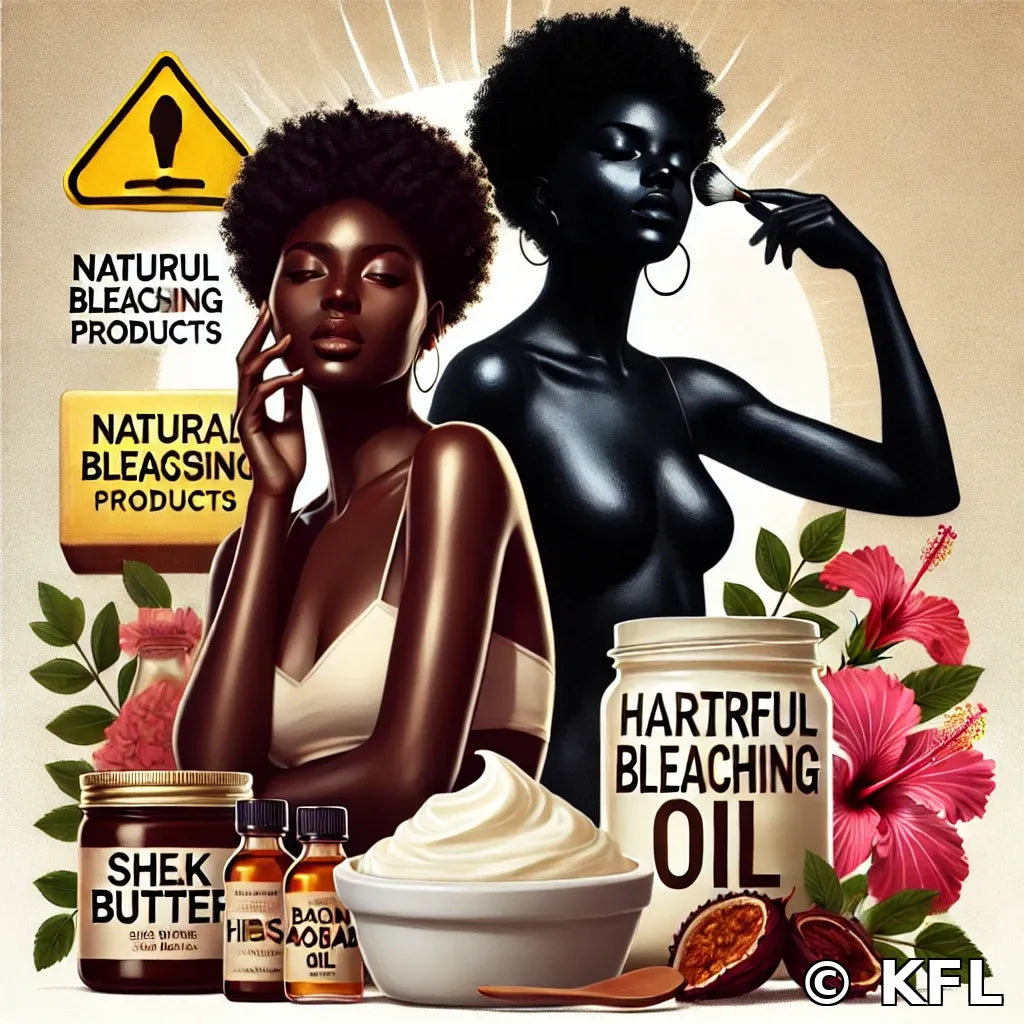
The Dangers of Skin Bleaching: A Warning to Preserve Your Health and Natural Beauty
Share Label
- What is skin whitening?
Skin whitening, also known as voluntary depigmentation, is a practice that involves using chemical products to lighten the complexion. This phenomenon is widespread in Africa, Asia, and certain communities in the West, often influenced by beauty standards imposed by society and the media.

- Why do some people choose to lighten their skin?
- Social pressures and beauty standards: Many associate lighter skin with beauty, success, and social status.
- Influence of media and colonial history: For centuries, lighter skin has been perceived as a marker of superiority.
- Lack of representation for darker skin tones: Models and actresses with lighter complexions are often given more visibility.
- Misinformation and aggressive marketing: Some brands promote skin whitening under the guise of “brightening care.”
- Products used and their dangers
Skin whitening products often contain highly toxic substances that can harm both skin and overall health.
A. Hydroquinone
- Banned in the European Union, this depigmenting agent inhibits melanin production.
- Side effects:
- Irreversible depigmentation, leading to dark spots
- Increased sun sensitivity, raising the risk of skin cancer
- Severe dehydration and premature aging
B. Mercury
- Extremely toxic, it destroys melanocyte cells.
- Side effects:
- Kidney failure
- Nervous system damage
- Severe rashes and paradoxical hyperpigmentation
C. High-dose corticosteroids
- Misused from their medical purpose, these are illegally sold in some lightening products.
- Side effects:
- Skin thinning and permanent stretch marks
- Hormonal imbalances
- Serious infection risks
- Long-term health consequences
- Increased risk of skin cancer
- Development of kidney and liver diseases
- Dependency on the products and a constant need for reapplication
- Psychological distress and loss of self-esteem when the damage becomes irreversible
- Why embrace your natural skin?
- Melanin provides natural UV protection, helping to prevent premature aging.
- Natural care products can give you radiant, healthy skin without the risks.
- Beauty standards need to evolve: All skin tones are beautiful and deserve to be celebrated!
- Natural alternatives for radiant skin
- Shea butter and baobab oil: Deeply moisturize and even out skin tone.
- Hibiscus powder and moringa oil: Rich in antioxidants, they naturally brighten the skin.
- Turmeric and honey masks: Provide a healthy glow without any danger.
- Conclusion: A call for self-love
Skin whitening endangers the health of millions of people. Rather than risking irreversible harm, it’s time to celebrate natural beauty and choose safe, healthy skincare solutions. True beauty lies in self-confidence and embracing who you are.
Love your skin—it’s precious! ✨
